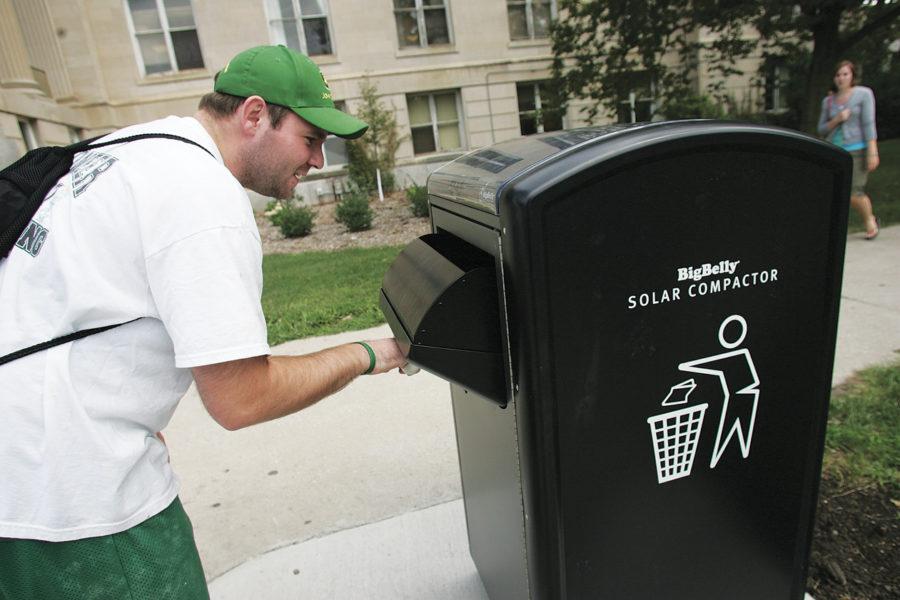Conservation programs succeed
Matt O’Brien, senior in accounting and finance, inspects the Big Belly Solar Compactor in front of Curtis Hall on Thursday, August 20, 2009.
July 12, 2010
Merry Rankin, director of sustainability, said Iowa State recently received results that show energy consumption was reduced by 3 percent during the past year, which is a little more than $8 million.
“So many different projects are going on at once; I absolutely don’t take individual credit for what has happened here,” Rankin said.
Rankin said the waste in the dining centers was reduced by 50 percent.
“[More than] 50,000 meals were saved,” Rankin said.
This has led to the deletion of trays in residential dining centers this fall.
The new recycling program brought in for resident halls is also seeing success.
“In six months we have diverted 18 tons of material,” Rankin said.
Iowa State received the first ever solar trash compactor in Iowa, which is located outside of Curtiss Hall.
Rankin said Iowa State is now looking to get 11 more compactors for high trash areas around campus.
One of the larger goals accomplished was wind energy on campus.
“A group that shows we have promise in the future of sustainability was launched. We had a student-initiated start of a student-led Green Umbrella organization,” Rankin said.
The mission of The Green Umbrella is to bring together different student sustainability organizations to make ISU students more aware of sustainable efforts around them, according to their website.
Its goals are to create an open forum for discussion about Green Initiatives at Iowa State; act as one voice to ISU administration about student sustainability issues and brainstorm ways to teach students how they can make their lives more sustainable; how they can participate in Go Green efforts; and how they can voice their opinions on sustainability issues.
At one of the home football games a renewable energy credit was purchased in order to offset the electrical and energy needs from a football game.
Rankin said there were little things done as well, such as installing gadgets on vending machines to make its lights go out when no one is around.
Iowa State was featured in an award competition for the governor’s environmental awards for its efforts.
“At the heart and soul of sustainability, what does sustainability really mean?” Rankin said. “It’s a thoughtful way of living and doing business. No one wants to have a place that takes energy when they are trying to provide good and efficient service.”
Any way people can be more efficient and less wasteful, they provide a service to the community and students.
“If we have less waste, we can put more money into different resources that can create a rich, diverse and full experience for students and the community members,” Rankin said.

















